Filters
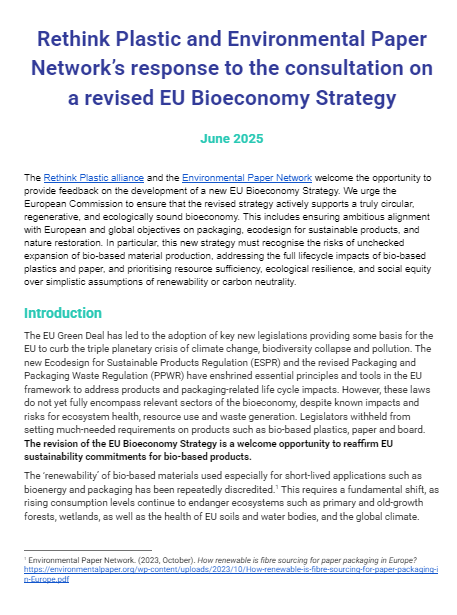
We urge the European Commission to ensure that the revised strategy actively supports a truly circular, regenerative, and ecologically sound bioeconomy.
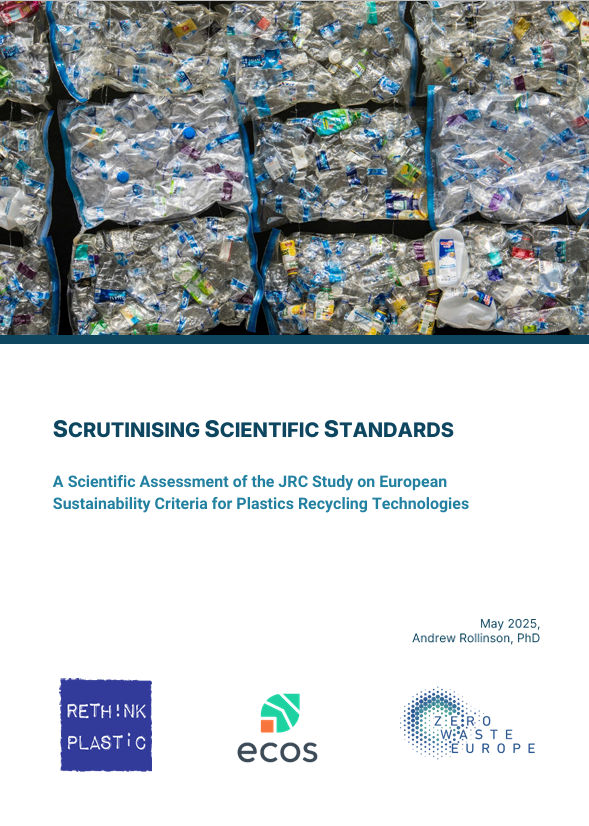
A Scientific Assessment of the JRC Study on European Sustainability Criteria for Plastics Recycling Technologies The aim of this report is to allow for a better understanding of the full […]
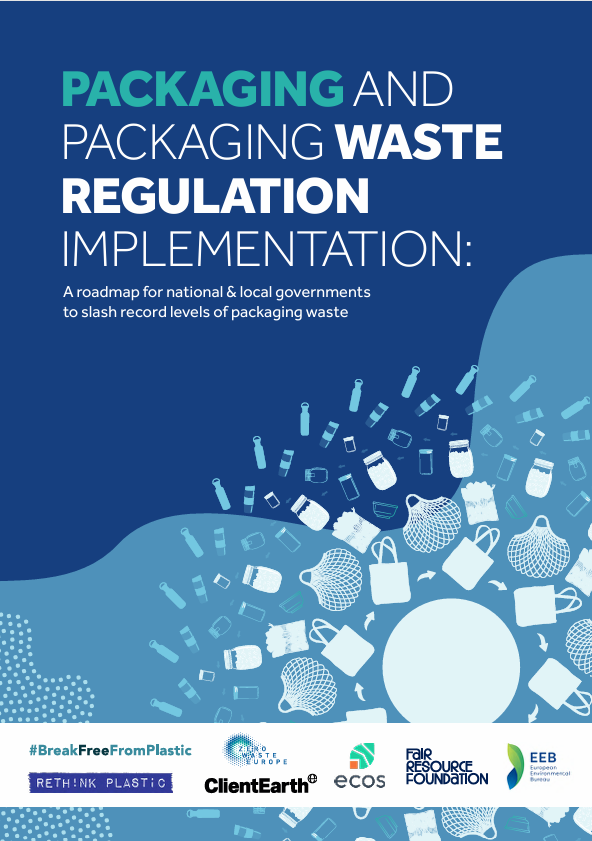
The PPWR provides many tools that governments at the national, regional and local levels can leverage to reduce packaging waste.
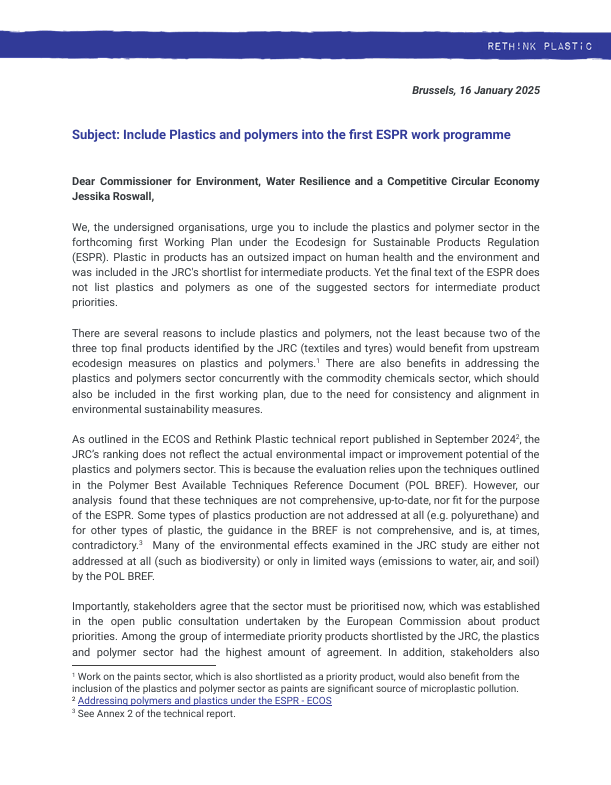
We, the undersigned organisations, urge you to include the plastics and polymer sector in the forthcoming first Working Plan under the Ecodesign for Sustainable Products Regulation (ESPR).
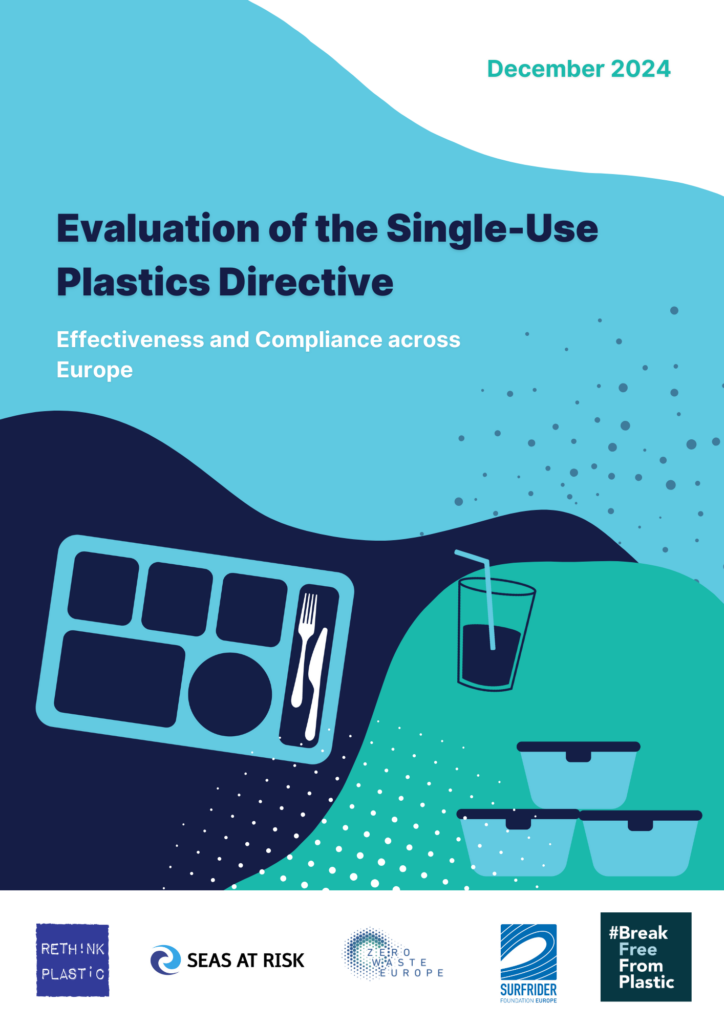
At Rethink Plastic, we have carried out our own evaluation of the SUP Directive with the contribution of the Break Free From Plastic Network, building on the previous transposition and implementation assessments published by the Rethink Plastic alliance to monitor developments since 2019, as well as recent assessments from our members on the state of play in their respective countries.
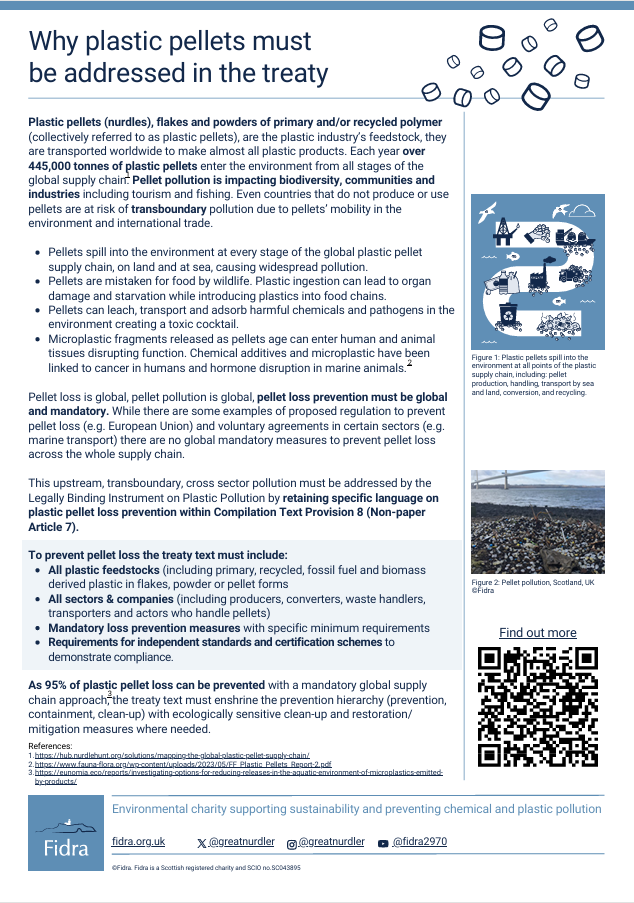
To prevent pellet loss the treaty text must include all plastic feedstocks, all sectors & companies, mandatory loss prevention measures with specific minimum requirements, and requirements for independent standards and certification schemes to demonstrate compliance
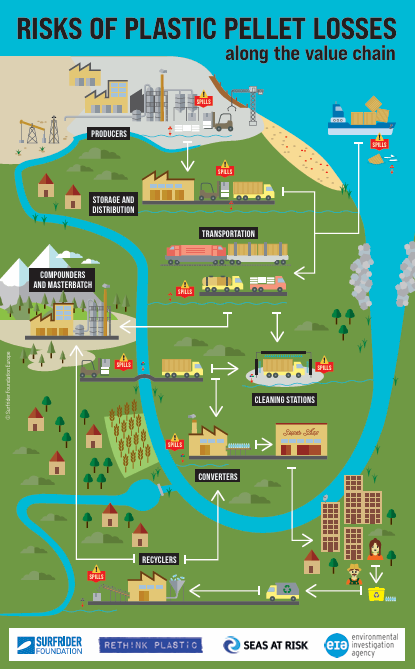
Plastic pellets are lost at all stages of the plastics value chain. The EU needs to address this issue with an ambitious Plastic Pellets regulation.

By prioritising plastics and polymers in the first ESPR working plan, the EU will take a major step in addressing the plastic pollution crisis, and work towards minimising the environmental footprint of plastic and polymer production.

Rethink Plastic’s position on the EU’s regulation to prevent pellet loss: To effectively reduce the environmental and economic burden of pellet loss, a comprehensive supply chain approach is essential to implement, with robust and binding measures for all operators at every stage of the supply chain, ensuring that those responsible for pollution are held accountable rather than leaving EU public authorities and citizens to pay.